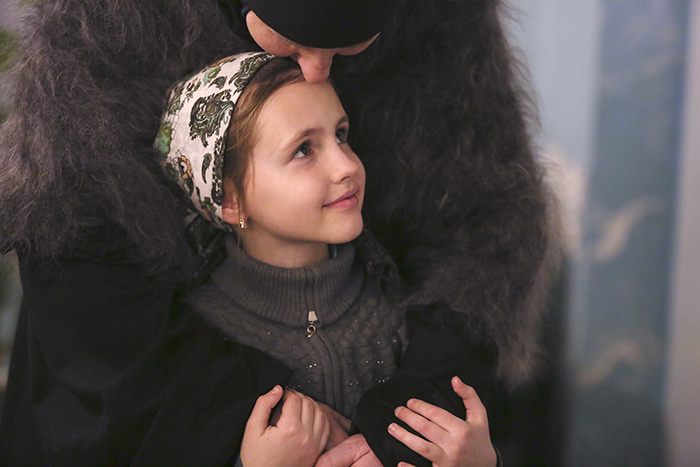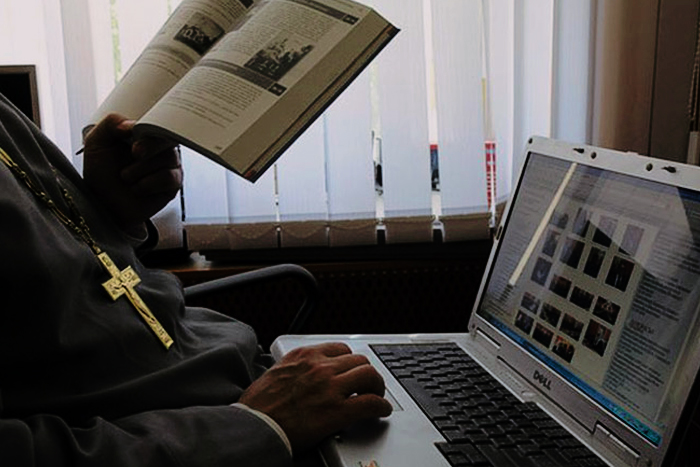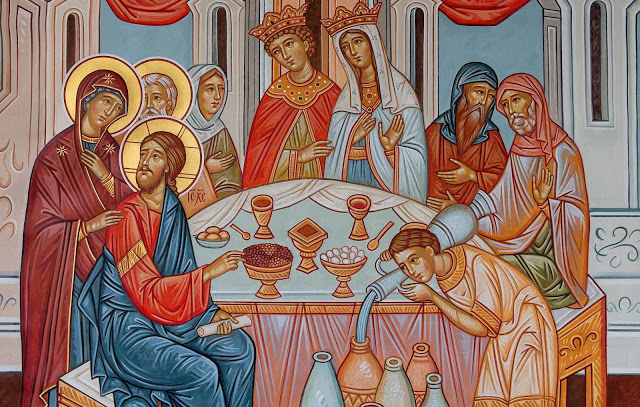
When I was a child, the beginning of the Lent was marked by our going to our village church, where we changed white towels and lace on the icons, as well as analogion cloths and altar curtains to black. We’d take the white ones home to wash and iron them, so as to dress the church again in bright attire on Holy Saturday afternoon. We did not have regular services at our church, as there was no priest, but there was a liturgy during the Lent and a moleben on Easter. Speaking of restrictions during the Lent in our family – I do not remember if there were any. Probably there were none, or we didn’t notice them. However, before the Communion we had to spend three days in preparation: we did not eat meat, eggs, milk, and candies, and avoided all kinds of entertainment. We read the canons and prayers of preparation for the Eucharist one by one for three evenings.
Because of my main job (I work as a babysitter), I have to answer parents’ questions about fasting for children, so I have identified the key topics, and will try to provide some succinct answers to these questions:
Meals
Fasting for children is likely to be primarily of a nutritional nature, because until a certain age children have no idea about spiritual life and spiritual struggle. You can decide with the child himself what exactly he is ready to give up for God’s sake. One should not force children to fast according to the regulations or not to eat at school (unless the child himself or herself wants it): not only does the growing organism need wholesome and diversified diet, but he or she also finds himself or herself in unequal conditions with other children.
Entertainment
If you deprive your children of any entertainment (watching TV, playing video games), you need to make sure that their free time is filled with something else, such as reading books. If a theater show or a museum exhibition is educational in nature and can help in the shaping of a child’s personality, you should not give it up. However, you should give up visiting an amusement park and other things you do for the sake of fun.
Make a Lent calendar with the children and mark all important liturgical and festive days. There are plenty of different instructional videos available online on this topic.
Fortunately, there are various good family traditions, such as baking the Lenten larks for the feast of the Forty Martyrs of Sebaste, decorating whole bouquets of willow for the feast of the Entry of the Lord into Jerusalem. You can talk with your children about the meaning of the memorable days and holidays during such preparation, as well as about the Lent as a journey to the most significant holiday – the Resurrection of Christ.
Prayer and Worship
Do not burden your children with additional prayer rules. Just add the prayer of St. Ephraim the Syrian with prostrations (not necessarily all sixteen of them, but at least one). Read the Gospel together.
It is going to be quite difficult for children to endure long Lenten services, but it would be great if you could attend the most significant services together during the Lent and the Holy Week.
We should not forget about good deeds, which must be done not only during the Lent. You and your child can decide who to visit or help. You can also encourage them to spend some of their pocket money on charity. Again, this should be the child’s own decision.
In conclusion, I would like to emphasize that the Lent for children in a family cannot exist on its own but only hand in hand with the fasting of parents. Therefore, your personal fasting must set an example for your children. For example, you can discuss various topics related to the Lent at a common meal, share your personal experiences and thoughts, talk sincerely about the difficulties you face. May the Lent become your family activity. After all, the worst thing that can happen is that the Lent would be perceived by children as a technicality or a punishment. When parents force their children to fast, fasting becomes unbearable.



